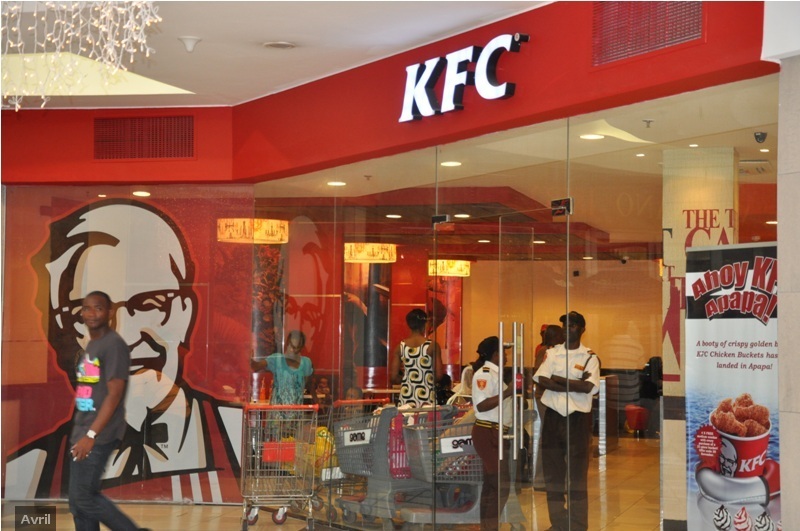Central bank’s clampdown on currency purchases in bid to tackle currency crisis puts businesses in a bind; KFC switches to rice.
Nigeria—A currency crunch in Africa’s top economy is escalating into a French fry shortage.
U.S. dollars have become increasingly scarce over the past 18 months as global oil prices crashed, depriving Nigeria of most of its export revenue. So the central bank has toughened rules governing how easily businesses can purchase them.
That helped the central bank freeze its reserves at about $28 billion, down around 20% from a year ago. But commerce is paying the price.
Unplugged from the global economy, factories and retailers can’t get the foreign currency to pay suppliers abroad. KFC and other restaurants have yanked French fries from menus in recent days here because they can’t get enough dollars to import potatoes.
“So we offer rice,” said Aditya Chellaram of Chellarams PLC, Nigeria’s KFC franchisee. Mr. Chellaram has trained cashiers to explain foreign-exchange restrictions to irate customers. Nigeria doesn’t have enough commercial potato farmers or processing plants to make up the difference. “It will take years,” he said.
The worsening currency crunch has derailed one of the world’s biggest frontier markets, a nation with 184 million people and average economic growth of 7% since 2004. But that rate will drop to about 4.1% this year, the International Monetary Fund says, as demand for Nigeria’s oil dries up.
Some big businesses still see the long-term promise of a market that adds 13,000 people a day: Coca-Cola Co. in January spent an estimated $400 million on a large stake in a Nigerian juice factory.
But many companies are scaling back. Roughly two-thirds of government revenue comes from oil. As crude prices tanked, the central bank faced a tough choice: let its naira currency depreciate, or spend the money and investor credibility to keep it afloat.
So far, the bank has chosen the latter path. Since February 2015, the bank has pegged the naira at around 198 to the dollar. Importers are barred from getting dollars to buy a range of items including toothpicks and soap, because the bank says they can be purchased from local manufacturers instead.
Some companies are resorting to hauling sacks of naira notes to tin-roofed money-changing stalls near the international airport here, where Muslim businessmen with cash stacks tucked into their ankle-length robes sell a dollar for as much as 385 naira, a 94% markup.
Now even those shacks are running out of dollars. “If I sell one naira, I thank God,” said Dicko Ibrahim, a local currency trader who normally keeps about $30,000 on hand. One recent morning, he was down to a single $100 bill.
The central bank says its policies are meant to spur local production, and create factory jobs in a country where most people aren’t formally employed. The short-term pain is an acceptable trade-off to help industrialize the country, central bank Governor Godwin Emefiele has said. In time, that could free Nigeria from its dependence on oil.
“There is wide room for optimism about the medium- to long-term macroeconomic prospects,” he said at January’s monetary-policy committee meeting, where many economists had expected Mr. Emefiele to announce a naira devaluation.
But manufacturers say his approach is fraught with problems. For example, the central bank won’t sell pharmaceutical factories dollars to import bottles, because it wants them to buy from local glass manufacturers.
The catch: Local glass factories don’t produce the kinds of bottles pharmaceutical companies need, said Muda Yusuf, director-general of the Lagos Chamber of Commerce and Industry. Glass manufacturers say there aren’t enough pharmaceutical companies in Nigeria to justify making them, either.
“They are all complaining bitterly,” he said.
Cable manufacturers have the same dilemma. The central bank has asked them to buy steel coating from Nigerian mills. But those plants don’t make the grades cable makers need. That means decades-old electrical lines will keep corroding, worsening the daily blackouts that stop assembly lines.
Food makers, meanwhile, have been told to buy palm oil from local farmers. But Nigeria doesn’t produce even half the palm oil its packaged-food factories require. That doesn’t seem likely to soon change: “Palm trees take years to grow,” Mr. Yusuf said.
The bank said it would review the impact of its policies before the next monetary-policy meeting in May.
Meanwhile, the consequences are adding up. Local airlines complain that they sell tickets in naira they can’t trade for the dollars they need to buy spare parts. Nigeria’s Customs Service says revenue at its ports fell $1.2 billion last year because so many importers can’t get dollars, either. Clearing agents say warehouses are sitting empty.
“The cargo is not flowing in at all,” said clearing agent Adebola Ibirogba, who is handling just 10% of his normal workload. “We just have to relax. There is nothing to do.”
Nigeria’s stock market has plummeted 14% this year, making it one of the world’s worst-performing exchanges. Brokers say they are tired of hassling bankers to get the dollars they need to conduct international trades.
“You have to keep going back to your bank: ‘Is it ready, is it ready, do you have the dollars, do you have the dollars?’” said Esili Eigbe, head of West Africa research at brokerage firm Exotix Partners LLP. “We’re now looking at other markets: Bangladesh, Pakistan, East Africa. They’re a lot more interesting.”
Wall Street Journal

